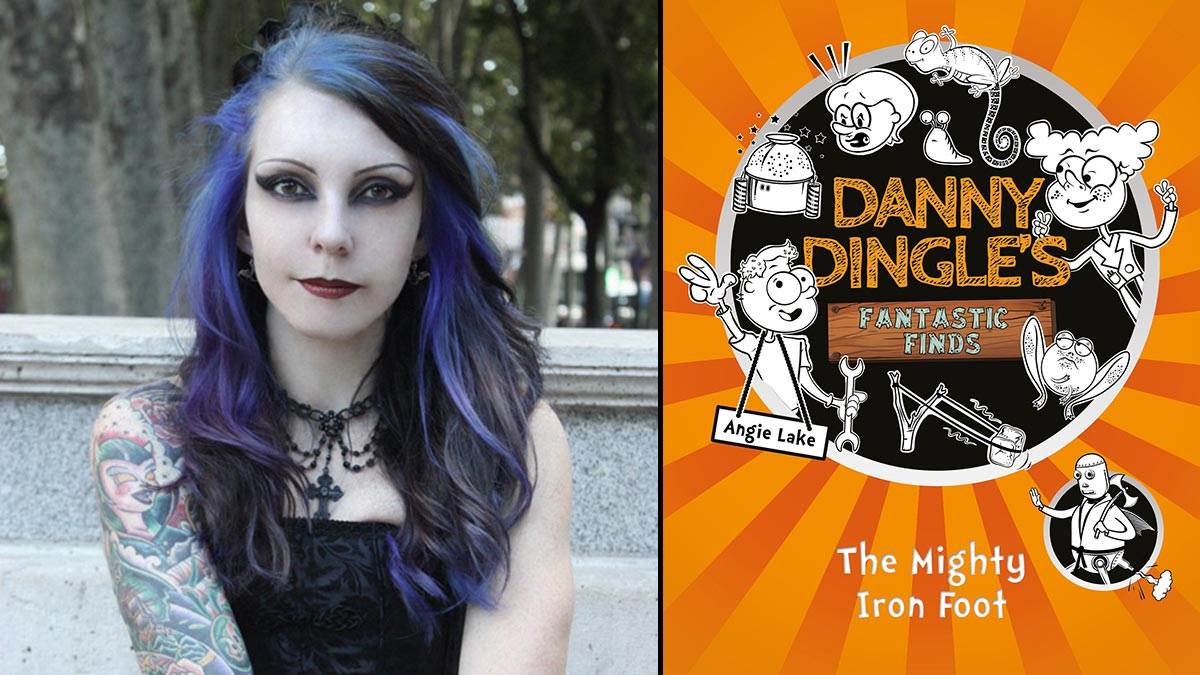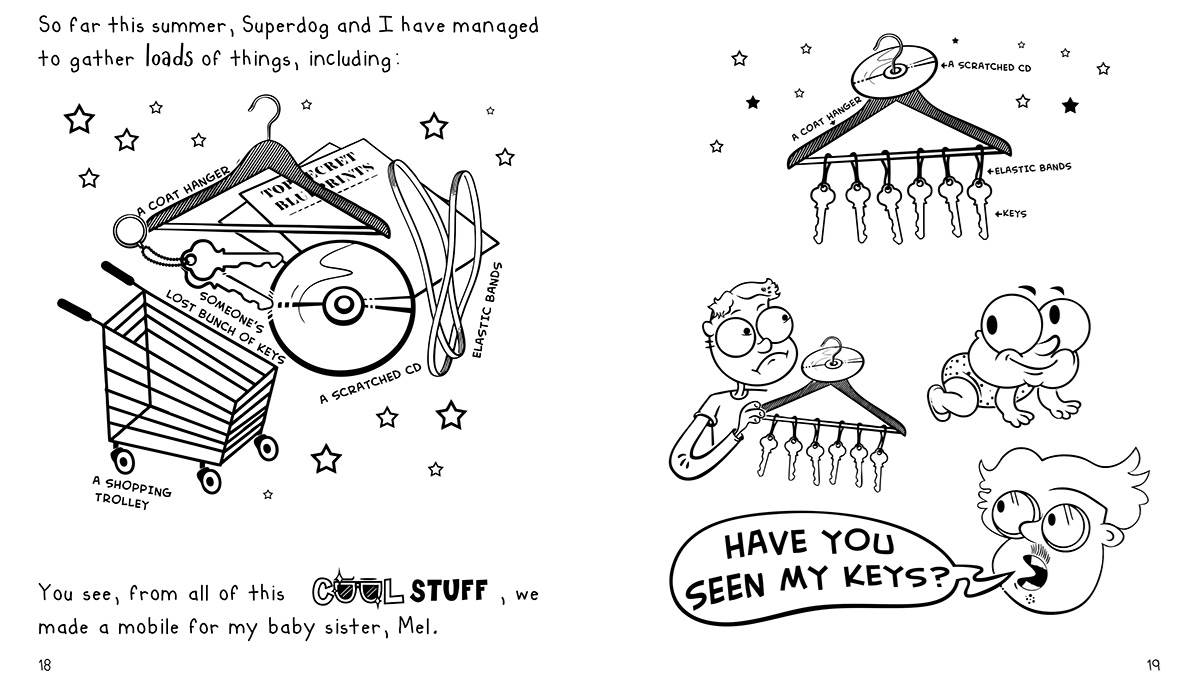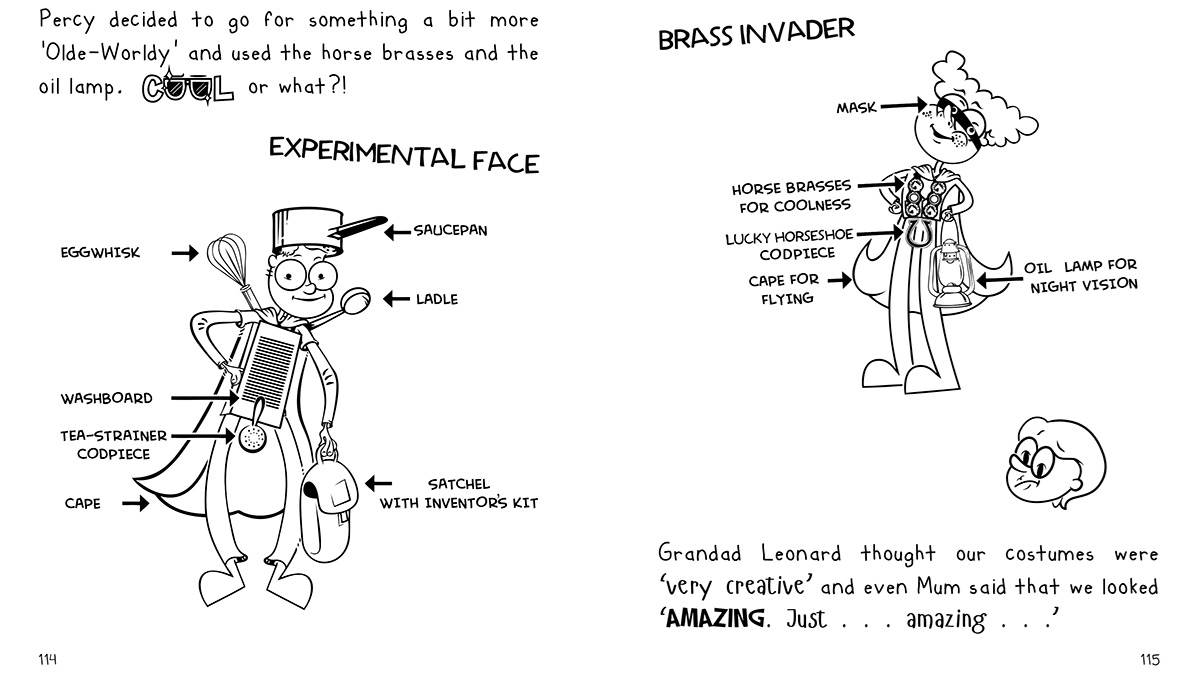'A unique skill can go a long way': Why we need both STEM AND arts subjects
Published on: 04 January 2019 Author: Angie Lake
Danny Dingle's Fantastic Finds author Angie Lake explains why STEM and arts subjects are both important in the world - and why we should all find our niche...

So, you've been at school for what seems like centuries and you have to start making some decisions about what you're going to do in life.
Your first choice was OBVIOUSLY to become a singer for the most awesome band of all time (basically because you get to be really famous without the inconvenience of having to learn to play anything) but your family tells you that you have the vocal grace of a baby calf choking on a lawnmower and to come up with a 'plan B'.
By now you've probably worked out that most people tend to fall into one of the following categories:
a) People who are good at maths, science and complicated stuff to do with logic (this isn't my category)
b) People who are interested in history, geography, politics... how the world and civilisation works in general
c) People who like painting, writing, music, dancing and so on. If this is you, your parents have probably already told you to study something useful like law or medicine if you don't want to spend your adult life living in your car. (This is me. The great thing about living in your car is that you never have to do any housework).

Illustrations: Shanith MM
If you're a 'type A' person, you're likely to go into what we call STEM studies. STEM stands for science, technology, engineering and maths. 'ARTS' doesn't stand for anything, but if it were an acronym it would probably mean Assembling sculptures from stuff you found in the rubbish, Rollerblading, Tattooing and Singing.
Although these fields seem worlds apart, their coexistence is one of the most important symbiotic relationships in human evolution.
For example, to make a website you need to be able to code - you need to be able to communicate with your computer to get it to display the images you see in your head. But if your website is so ugly it makes people want to rip out their own eyes and eat them, your professional failure is ensured. We live in unprecedented times when, thanks to our digital evolution, consumers not only call for devices and applications that are cutting-edge technologically; they also have to be practical and attractive.
Look at Danny Dingle, for example. When Danny designs a costume or comes up with an invention, it's not only a superbly efficient concept in engineering, but it also has to be sleek, attractive and usually requires at least two rolls of tin foil to achieve its aesthetic 'wow factor'. STEM and Arts are fields that seem completely at odds, while entertaining a paradoxically co-dependent relationship.

Illustrations: Shanith MM
It was never entirely clear to me which particular discipline to choose... and it still isn't. I don't think I have Danny's engineering ability, though I'm pretty sure I have his maths skills. Science, maths, English, creativity... it's all important when writing the Danny Dingle books.
Being an 'arty' person isn't a bad thing. Despite the bad reputation that arty subjects have as career choices, I try to remember that there's a niche for everything and a unique skill can go a long way.
In any field, practice makes perfect, and you're more likely to put in the hours if you're doing something you enjoy. With that in mind, first of all work out the things that you wouldn't mind spending hundreds of hours doing, and start from there.
P.S. I don't really live in my car.
Angie Lake is the author of the Danny Dingle's Fantastic Finds series including The Metal Mobile, The Super Sonic Submarine, The Jet of Justice and The Mighty Iron Foot. The series follows schoolboy inventor Danny Dingle and appeals to those who love science as well as those who love reading.
Topics: Non-fiction, Science, Features






Add a comment